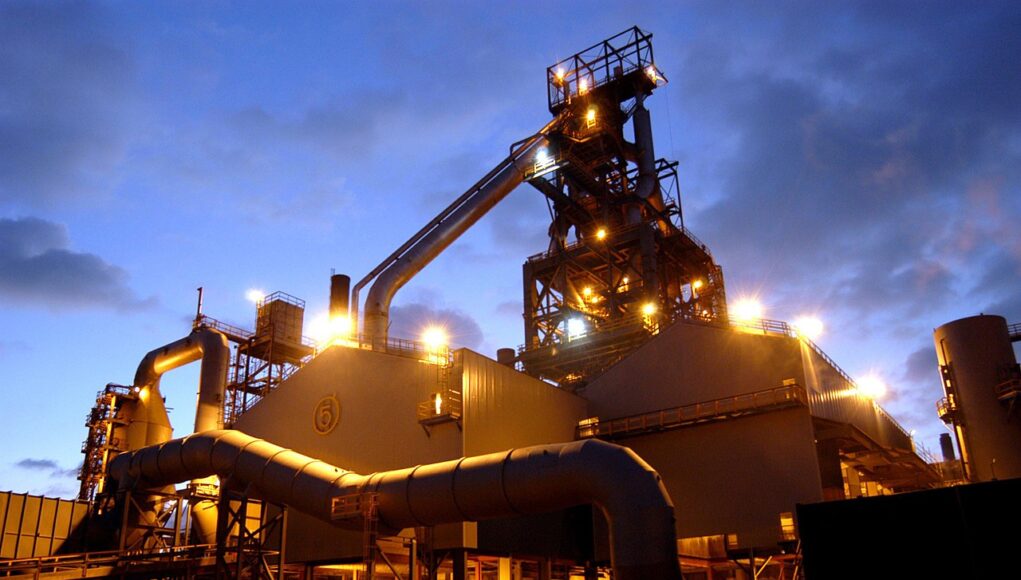The Ministry of Defence has confirmed that it is reviewing the UK’s steel supply chain as part of a broader effort to align defence procurement with national security and economic goals, amid continued reliance on both domestic and international sources for specialist materials.
In response to parliamentary questions from Tanmanjeet Singh Dhesi MP, Defence Minister Maria Eagle acknowledged that while British steel continues to play a vital role in defence programmes, many contracts require materials that cannot currently be sourced from within the UK.
“The UK steel sector provides vital support to the UK’s defence capabilities,” Eagle stated. “Steel used in our major Defence programmes is sourced by our prime contractors from a range of UK and international suppliers, as programmes may often have requirements for specialist steel which cannot be sourced in the UK.”
Data on the volume and origin of steel procured for defence is published annually by the Department for Business and Trade in the Steel Public Procurement report.
Looking ahead, Eagle confirmed that the Ministry of Defence is actively developing a new Defence Industrial Strategy that will review critical supply chain elements, including steel. This work will form part of a wider cross-government Steel Strategy intended to provide long-term stability and growth for the sector.
“This will include a review of the UK’s approach to critical supply chain elements, such as steel, alongside reviewing and reconfirming the areas where the UK needs to retain sovereign production capacities onshore,” Eagle explained. “The Government will also bring forward a new cross-government Steel Strategy which will establish a long-term vision for the industry, promoting long-term growth, that aligns with wider priorities, including the trade strategy, Strategic Defence Review and the upcoming Modern Industrial Strategy.”
The clarification follows growing calls from across the political spectrum to increase domestic steelmaking capacity and reduce reliance on foreign sources, especially in sectors deemed essential for national defence.
However, the government has yet to release a specific estimate for the proportion of UK-made steel procured for defence programmes in the past year.














I fear the defence budget being raided to pay for steel subsidies…..I hope im wrong.
Forgemasters was one thing as they are very specialist and central to submarine production.
General steel production needs to stand on its own two feet – which means energy prices go down and volumes are optimised…
Yup, even specialist steel like HY-80 for boats is going to take a lot of capital cost and will be more expensive than current US or French sources
The issue is that in order to make a batch of high grade the furnace needs to be serially charged with high grade steel to get the dilutions right.
This isn’t as simple as it sounds as some materials bind, preferentially to the refectory lining and so it takes a lot of charges and discharge cycles to get levels down by leaching from the lining.
Essentially if we have operational furnaces we can make whatever steel we need in a time of crisis – that is what matters really.
We don’t have indigenous high quality ore and never really have. The coming coal could be indigenous if the coal mine, that was proposed, was ever allowed to be built.
Slow clap.
I refuse to applaud the rectification of blind incompetence. Congratulations, this still falls well short of what I’d consider acceptable.
Ok do you want more ships and submarines or more steel workers, you can’t have both
Your expectations are very low and I don’t agree with that analysis in the longer term but you very clearly demonstrate the main symptom of the British disease, short termism.
Buying more expensive steel than you can elsewhere will always mean that you get less ships for your money.
There is no reason why the UK cannot produce steel at a very competitive price when compared to peer nations in Europe and North America. If you want to buy
steel from Asia then you can definitely get it cheaper but there is a rather obvious strategic risk in doing that.
Given by value 50% of the steel in a Type 26 is already UK manufactured and steel makes up less than 50% of the cost of a warship then the premium to increase the content of UK steel is not huge but there are clear economic and strategic benefits. It takes political will, long term investment and bluntly a more nationalistic approach.
« It takes political will, long term investment and bluntly a more nationalistic approach. »
In a nutshell, you need De Gaulle. Sorry, I had to😉
😂👍
is there a reason we cannot re use steel from recycling from out of service royal navy ships.
Yes. Its sold to Turkey on the cheap
It sounds good. Really.
A review looking at defence and steel logistics.
The reality is well known.
Steel making in the UK right now is not truly viable. Nor can it be changed to reduce reliance on imports. The last blast furnaces in the UK are End of Life write offs, UK steel is expensive in a world where there is a glut of cheap steel and steel making can only survive through massive change and equally massive subsidies.
Steel is seen as a strategic resource which is why so many want it to continue. But importing raw materials will remain necessary and that import necessity is a big reason why UK steel costs so much. And it cannot be sidestepped. Sure….some talk re-opening coal and iron mines but really….if this was economically viable, it would have happened decades ago. Truth is any suitable iron and coal has been mined out and what is left is low quality which will require expensive processing before its suitable for use.
Any solution which ignores the inevitability of multi-billion pound subsidisation of UK made steel is a solution which won’t work. That subsidy may take the form of direct payments, or Network Rail paying over market rate, but somewhere in any solution to make British Steel sustainable will be a means to pump billions into the sector. Higher taxes, or higher prices.
And whats worse is this would be achieved purely to slake British pride. No other reason. The UK needs a steel industry because it can’t be the only G7 member without one.
plenty of high quality coal left, ok there a cost to mining it, but to say there no high quality left in the UK is rubbish
A lot of the “high quality” UK coal is contaminated with substances such as sulphur. There’s iron as well but again, you need expensive processing to make it suited for use in the steel industry.
Those additional costs ensure that it is actually cheaper to import raw materials than rely on domestic sources. And thats not counting the costs of actually re-opening mines. Business being business, if it were cheaper to use UK materials, British steel would have never stopped using them.
Its even worse these days because with the loss of coal fired generators, there is a loss of scale. The domestic market for coal is much smaller, again providing additional pressures on costs and increasing prices. Export markets have been looked at, but the high sulfur content of British coal makes it unattractive to many buyers.
But even if we go with “high quality” coal, that still leaves a need for iron.
No matter how you slice it, you can only say that domestic supply of the UK steel industry is technically possible, but would increase costs and make UK steel…already expensive…cost even more and making it less desireable to other markets. It could only be sustained as is either through massive ongoing subsidies….especially since those blast furnaces Westminster says are so important are about to die and will need billions to replace…or by increasing prices beyond what the market will pay.
Costs can be cut……but the Chinese plan Labour rejected would have done that, and being blunt, the transition to EAFs remains the most viable option open to making British steel viable. But Labour put a lot of effort into exaggerating the downside of EAFs purely to placate Trump who, in a sane world, would not be allowed such vetoes over UK security issues.
I seem to remember a lot of coal going from Oakdale colliery complex to Scunthorpe steel works. very few people seem to believe that the Chinese had any intention of building the EAF, and the real plan was just to use Chinese steel instead
Have you really used call of duty rust map as the picture
Said goodbye to my old ship ,being towed to Turkey for scrapping over 5,000 tons .Should of kept her in house scrapped her here , Steel that we need has ended up in Turkey .So much for recycling
Please can the UK build an Austrian/Korean technology Finex steelworks, which is clean & economical. South Korea has 2 & 1 is being built in India.
Good Day,
A Long overdue Review. It should have been done many years ago for the Steel industry as well as many other strategic businesses.
To many industries have been lost.
Nick
Almost too late but perhaps just in time. Scunthorpe’s blast furnaces are not end of life and indeed 2 more could be restarted after significant investment. Bottom line, with the Yanks showing their true treachery we need to start looking out for ourselves and sod everyone else no matter what the cost. The new British motto needs to be: “I am alright now pull up the drawbridge and to hell with everyone who is not British.” Why have we become such milk sops who crave to be part of a group all the time?